OK, by now we all realize (hopefully) that we should be structuring our season training plans to
help us peak for our most important races of the year. You want to be 100% fit and ready at that
time, not here in January, right?
Along those lines, you must also realize that as you build up your fitness toward your big goal of
this year, your training will also be building up and improving. Just as we cannot race at 100%
year round, neither can we train at 100% fitness year round. So many athletes seem to "forget"
this pertinent factor.
If you are not ready to perform at 100%, then why do you expect your training to be faster than
ever before? "I just ran a 10k and my time was so slow compared to what I did last July." Well...
of course. It should be. It's January! It's cold, you aren't (shouldn't be) doing any race-specific
intervals, your body is naturally experiencing a period of hibernation and you're getting back into
your routine after a period of down time after your last season came to an end. So, with all of
these factors working against your ability to perform at 100%, why do you expect a PR at a race
in January?
Sure, you can compare the same race year-to-year to possibly - possibly - gauge your fitness.
But even then your performance is affected by weather conditions. One year's Super Bowl
Shuffle 5k might be greeted with temps in the 50s while the next year it could be 20 and snowing.
You shouldn't expect a better or even similar result in less favorable conditions, but how many of
us refuse to cut ourselves that slack? Not too many of us.
Maybe this will help you get through the winter and spring. Think of your training during this
period as a calculated, gradual progression that holds you over until it is time to turn the screws andget down to business. While it is true that you gain the majority of your fitness during the initial 3-5 months after a prolonged break from training (4+ weeks), you can still view your improvement
curve as one that rises gradually now and then spikes in the weeks approaching your most
important race(s). That spike is resultant from the addition of race-specific training that sharpens
your fitness, smoothes the rough edges and brings everything in your program together to a nice,
solid peak performance.
Now, that being said, I don't mean that you should simply dawdle along until June. You can't
afford to shoot your plan full of holes. But your resolve can be more relaxed and you can cut
yourself some slack at this point. If you are too focused now, then you run the risk of hitting the
brick wall called Emotional Burnout just about the time you should be getting excited about what
you're trying to accomplish. Bad news when this happens.
Training is the means to the end. If you're training faster than ever before right now, be careful.
You may not be leaving yourself anywhere to go but down (meaning slower) when it really comes
time to kick things into a higher gear.
So, cut yourself some slack! As long as your training is improving during these upcoming months
and your Plan is on track, then relax and enjoy.
Happy Training,
Coach Nate

 RSS Feed
RSS Feed